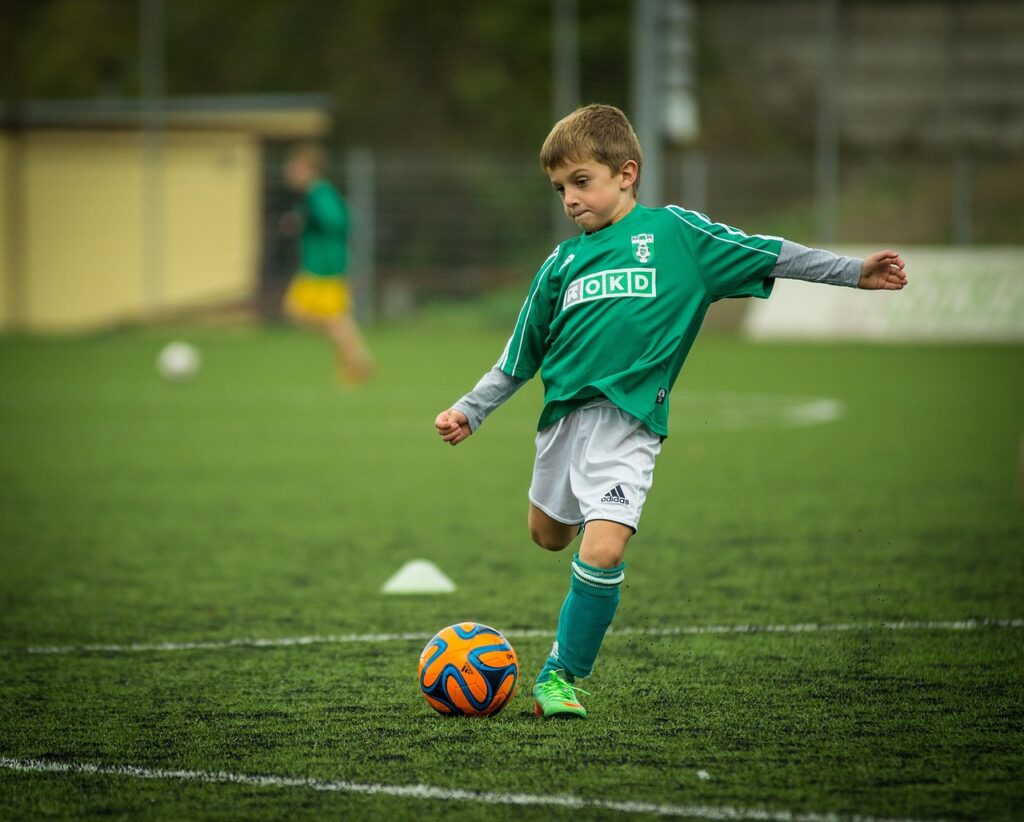Table of Contents
Play is an essential aspect of childhood that contributes significantly to a child’s overall development. It is through play that children explore the world, develop their physical and cognitive abilities, learn social skills, and foster creativity and imagination. In this essay, we will explore the various benefits of play and why it is crucial for the holistic development of children.
Physical Development
One of the primary benefits of play is its positive impact on a child’s physical development. Engaging in physical activities such as running, jumping, climbing, and playing sports helps children develop their gross motor skills, coordination, and balance. It promotes a healthy lifestyle by encouraging them to be active, strengthening their muscles, and improving their cardiovascular health. Additionally, outdoor play exposes children to fresh air and sunlight, contributing to their overall well-being.
Cognitive Development
Play also plays a vital role in enhancing a child’s cognitive abilities. Through various forms of play, children develop their problem-solving skills, critical thinking abilities, and creativity. Activities such as building blocks, puzzles, and board games stimulate their logical thinking and reasoning skills. Pretend play, where children take on different roles and engage in imaginative scenarios, enhances their language skills, vocabulary, and storytelling abilities. Play fosters curiosity and a thirst for knowledge, laying the foundation for lifelong learning.
Social and Emotional Development
When children engage in play, they interact with their peers, siblings, and parents, facilitating the development of social skills and emotional intelligence. They learn to take turns, share, cooperate, negotiate, and resolve conflicts. Play helps children understand emotions, empathize with others, and develop resilience and self-regulation. By engaging in imaginative play, they can explore different perspectives and understand the world from various viewpoints, fostering empathy and inclusivity.
Creativity and Imagination
Play encourages children to tap into their innate creativity and imagination. Whether it is building with blocks, drawing, painting, or engaging in role play, children can express themselves freely and develop their artistic skills. Imagination allows children to explore new possibilities, create their own narratives, and develop problem-solving abilities. It fosters innovation, adaptability, and the ability to think outside the box, qualities that are valuable in all aspects of life.
Stress Relief and Well-being
Play provides an outlet for children to release stress and pent-up energy. It allows them to relax, have fun, and experience joy. Playful activities promote positive emotions, reducing anxiety and improving mental well-being. It creates a safe space where children can express themselves without fear of judgment, leading to increased self-confidence and self-esteem. Play also strengthens the bond between children and their caregivers, as shared play experiences create lasting memories and connections.
Furthermore, it is important to note that play should not be underestimated or overshadowed by academic pressures or structured activities. While formal education is undoubtedly crucial, play should be seen as an equally vital component of a child’s growth. In fact, research has shown that a balanced approach, where play and learning go hand in hand, yields the best outcomes for children.
In today’s fast-paced, technology-driven world, children often find themselves engrossed in screens and digital devices. While some digital play can be educational and interactive, it is essential to strike a balance and ensure that children also engage in unstructured, imaginative play. This type of play allows children to unplug, disconnect from screens, and connect with their surroundings and peers.
As parents, educators, and caregivers, we have a responsibility to create an environment that encourages and supports play. This can be achieved by providing children with open-ended toys, art supplies, outdoor spaces, and opportunities for social interaction. It is equally important to allocate dedicated time for play, free from academic pressures and overscheduling. By valuing and prioritizing play, we are nurturing children’s overall well-being and fostering their development in multiple domains.
Additionally, play can be extended beyond the confines of the home or school. Communities should strive to create safe and accessible play spaces such as parks, playgrounds, and recreational centers. These spaces offer children the chance to explore, interact, and engage in physical activities, enhancing their overall health and social skills.
The Role of Play in Problem-Solving and Decision-Making Skills
Play has a significant impact on a child’s problem-solving and decision-making abilities. Through various forms of play, children encounter challenges and learn to think critically to overcome them. Whether it’s solving puzzles, building structures, or engaging in imaginative scenarios, play presents opportunities for children to make decisions and evaluate their consequences. They learn to analyze different options, assess risks, and develop strategies to achieve their desired outcomes. Playful problem-solving fosters resilience, adaptability, and a growth mindset, qualities that are valuable in navigating real-life situations.
Play serves as a powerful tool for cultural and social learning, allowing children to explore and understand the world around them. Through pretend play and role-playing, children imitate and learn about different cultural practices, traditions, and social roles. They develop an understanding of diverse perspectives, fostering empathy and acceptance. Play also provides a platform for children to engage in social interactions, practice communication skills, and learn appropriate social behavior. By engaging in collaborative play, children learn the importance of teamwork, cooperation, and respect for others’ ideas and opinions.
Play and Physical Health: Promoting an Active Lifestyle
Play has a direct impact on children’s physical health by promoting an active lifestyle. Engaging in active play, such as running, jumping, and playing sports, helps children develop strong muscles, improve coordination, and enhance cardiovascular fitness. Outdoor play provides exposure to natural elements, fresh air, and sunlight, contributing to overall well-being. By encouraging regular physical activity through play, we can help children develop healthy habits that can benefit them throughout their lives, reducing the risk of obesity and associated health issues.
Play and Cognitive Flexibility: Nurturing Adaptability and Creativity
Play fosters cognitive flexibility, which is the ability to shift thinking and adapt to new situations. When children engage in imaginative and open-ended play, they encounter different scenarios, problem-solving challenges, and varying roles. This exposure to diverse situations helps children develop flexible thinking and adaptability. Play also stimulates creativity by allowing children to explore new ideas, experiment with different solutions, and think outside the box. These skills are vital for navigating an ever-changing world and fostering innovation and resilience.
Play and Emotional Regulation: Building Resilience and Self-Control
Play has a profound impact on emotional regulation, helping children develop resilience and self-control. During play, children encounter various emotions, such as excitement, frustration, and joy. They learn to manage these emotions, practice self-regulation, and cope with challenges. Play provides a safe space for children to express their feelings and explore different ways to regulate their emotions. By navigating emotional experiences through play, children develop the skills necessary to cope with stress, regulate their emotions effectively, and build resilience in the face of adversity.
Play plays a crucial role in language development by enhancing children’s communication skills. Whether it’s engaging in pretend play, storytelling, or engaging in group activities, play provides ample opportunities for language exploration. Children learn to express themselves, engage in conversations, and expand their vocabulary through play interactions. Imaginative play allows children to create narratives, engage in dialogue, and practice using language in various contexts. By fostering language development, play sets the foundation for effective communication skills, literacy, and academic success.
Play contributes to the development of executive function skills, which are critical for planning, organizing, and self-regulation. Through play, children engage in activities that require them to set goals, make decisions, and manage their time effectively. Whether it’s building structures with blocks, creating elaborate imaginary worlds, or participating in board games, children learn to strategize, prioritize tasks, and allocate resources. Playful experiences provide opportunities for children to practice executive function skills, fostering their ability to plan, organize, and accomplish tasks in a systematic manner.
Play serves as a powerful tool for promoting cultural understanding, diversity, and inclusion. When children engage in play with peers from different backgrounds, they gain exposure to various cultures, traditions, and perspectives. Play allows children to celebrate diversity, appreciate different customs, and develop empathy towards others. By engaging in collaborative play, children learn to respect and value different viewpoints, fostering a sense of inclusivity and cultural acceptance. Playful interactions create an environment where children can learn about, appreciate, and celebrate the richness of diverse cultures.
Play and Problem-solving Skills: Nurturing Critical Thinking Abilities
Play plays a vital role in nurturing and developing problem-solving skills in children. Through various types of play, such as puzzles, construction toys, and interactive games, children are presented with challenges that require them to think critically and find solutions. Play allows children to experiment, make connections, and think creatively to overcome obstacles. It encourages them to explore different approaches, analyze cause and effect relationships, and develop problem-solving strategies. By engaging in play, children develop and refine their critical thinking abilities, equipping them with valuable skills that are essential for success in academics and real-world situations.
Play is a significant contributor to the development of social competence in children. By engaging in play with their peers, children learn valuable social skills, such as sharing, taking turns, and cooperating. Play provides opportunities for children to practice communication, negotiation, and conflict resolution skills. It allows them to learn how to navigate social dynamics, develop empathy, and understand the perspectives of others. Through collaborative play, children build positive relationships, learn to work as a team, and develop essential social competencies that are crucial for success in interpersonal relationships throughout their lives.
At last, play is not only enjoyable for children, but it is also an essential aspect of their development. Through play, children acquire physical, cognitive, social, and emotional skills that form the foundation for their future growth and success. It is through play that children discover their passions, talents, and identities. As a society, we must value and prioritize play, creating an environment that allows children to thrive and reach their full potential. Let us recognize the power and significance of play in shaping the lives of our children and ensure that it remains an integral part of their journey towards adulthood.
Conclusion
In conclusion, play is not merely a pastime for children but a fundamental aspect of their development. It promotes physical, cognitive, social, and emotional growth, while also nurturing their creativity and imagination. Parents, educators, and society as a whole should recognize the significance of play and provide children with ample opportunities for unstructured, free play. By doing so, we can support the holistic development of children, ensuring they grow into well-rounded individuals equipped with the skills necessary to navigate the complexities of life.



